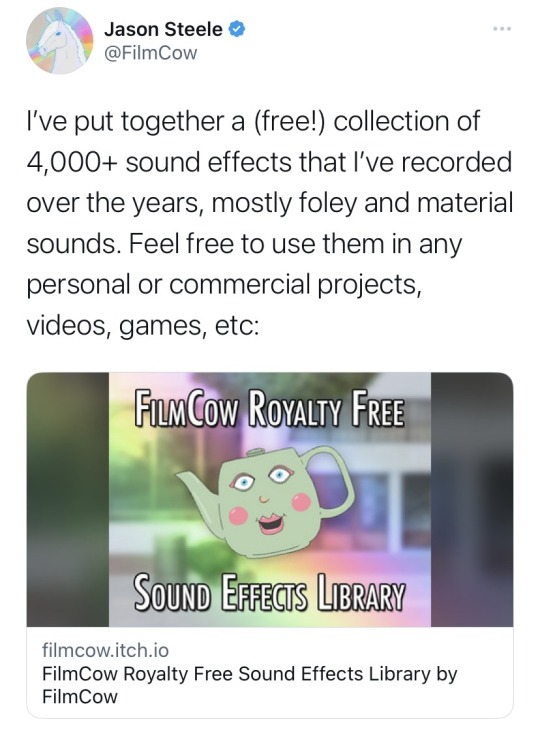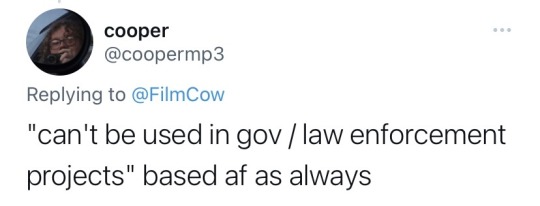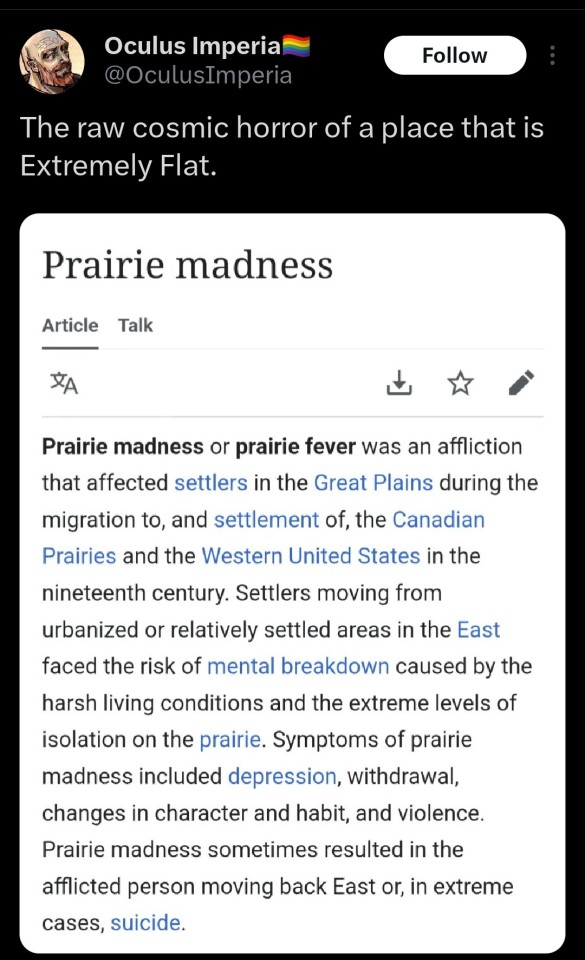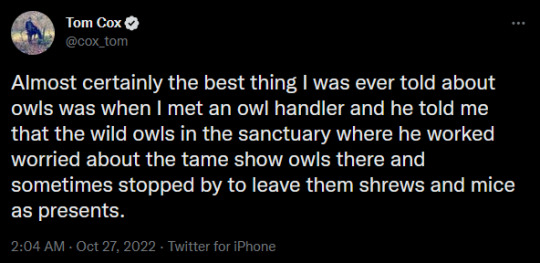Text
All throughout childhood, while my peers were socializing and making friends, I studied the blade read so many books that I am now almost legally blind, which left me with vast and deeply instinctual understanding of English grammar - and next to no ability to explain how it actually works. Friends will often ask me to proofread their writing and then get very mad when I say things like, "You need to completely reverse this sentence and cut this clause entirely; no, I'm sorry, i don't know why, I just know that the way it is now ITCHES 😭"
Now, what I want to see is a fantasy story where this plays out with MAGICAL grammar. Someone from a backwater town deeply steeped in folk magic arrives at Wizard Uni where all their fellow students are like "What do you mean, we should add another '𝞯∘⋇𝞿' to the incancation because it 'sounds better'? What do you mean, 'it could just be a regional thing'?? WHAT DO YOU MEAN, 'THIS SPELL JUST FEELS LIKE IT NEEDS A LIVE RAT'????"
37K notes
·
View notes
Text
Writing Description Notes:
Updated 3rd June 2024
More writing tips, review tips & writing description notes
Facial Expressions
Masking Emotions
Smiles/Smirks/Grins
Eye Contact/Eye Movements
Blushing
Voice/Tone
Body Language/Idle Movement
Thoughts/Thinking/Focusing/Distracted
Silence
Memories
Happy/Content/Comforted
Love/Romance
Sadness/Crying/Hurt
Confidence/Determination/Hopeful
Surprised/Shocked
Guilt/Regret
Disgusted/Jealous
Uncertain/Doubtful/Worried
Anger/Rage
Laughter
Confused
Speechless/Tongue Tied
Fear/Terrified
Mental Pain
6K notes
·
View notes
Text
A super simple worldbuilding step-by-step
Hey lads! Feel free to use this worldbuilding guide as in-depth (or as casually) as you feel your story requires. I made this sheet for building my fantasy series as a quick reference when writing, and found when filling it out it helped to prompt new, additional ideas to deepen the subplots and setting.
I’ve created three steps that should help you flesh out some of your world. The guide covers some most of the basic points you may want to consider when worldbuilding a larger-than-life, unique setting to suit your story. I’ve included some thoughts of my own to help you on your way.
Good luck & enjoy the journey,
Fáe ✨
STEP ONE: WORKING OUT THE WORLD
SOLAR SYSTEM AND HABITABLE WORLD
We are going to start right at the beginning of the beginning, so consider what planets and celestial bodies your solar system has. Does it affect the day and night sky to your characters? Does this affect your day and night cycle? Is only one planet habitable? What size is the planet your story takes place? Consider the solar system and the names of what might be viewable to your characters (stars, planets, are there comets? constellations? debris?) - does this also influence the way your character(s) view the world / space / their belief systems? Or, if your story is really out there - are they even living on a planet at all?
ORBITAL CYCLES, MONTHS, DAYS OF THE WEEK
You don’t have to establish these at all in all honesty, especially when you’re just starting out - but it can be fun to do to make your world(s) feel more unique to the reader. Using what you’ve established of your solar system, does this affect the length of your years. How many months do you have? What are they called? Are there seasons associated with the passing of time? How is time passing measured or noted?
CLIMATE AND SEASONS
Depending on where your planet is located, what kind of climates would you expect to see on your world? What is the length of the seasons? Of course there isn’t going to be one kind of weather for one place, but a hotter planet may have more arid land than not, a greenhouse planet may be more lush and humid in more countries than not. Of course, if you aren’t visiting the world, some general note taking, for your reference only, will do.
SPECIES & RACES (IF APPLICABLE)
Does your world have different sentient species or races? If so, what are they and what differences do they have? Defining traits? Both physical and non-physical? Where are they from? Considering what we have already covered, what influences does the world, the climate, even the solar system itself, have on these beings. (Use the bullet points in Step 3 to give them serious flourish!)
STEP TWO: WE START TO ADD LITTLE MORE DETAIL
LANDMASSES, CONTINENTS & COUNTRIES
Let’s start with the world where your characters live. What’s this place called? Are your characters even aware of what they live on? Or do they fear they’ll fall off the edge if they wander too far? Can your character travel openly? Do they have maps - and what kind? How much of the world do they know - if any at all! Whatever the situation, how are your landmasses divided? How does the natural terrain affect your character's ability to see, travel and understand their surroundings, both local and distant. How has the land formed and what does it affect?
CITIES, KINGDOMS, TERRITORIES/REALMS
Who rules where? Who owns where? What affect does this have on the country and the people(s) that live there? Are they at war? Are they at peace? Do countries have open or closed borders? What are the capitals? What are these places most famously known for? What histories of these places have in relation to each other.
TRADE AND ECONOMY
Going a baby step further, what do your countries trade in, and with who? What are the currencies used? Is your country flourishing or floundering? How does this affect the general populace? Consider the climate, landscape and alliances when deciding who trades with who and why.
FOOD & FARMING
What sort of food grows in your country? How is it farmed? Distributed? Traded? What food is native to your country, what is considered a delicacy to its populace? Consider the location, the weather, the land.
TECHNOLOGY
Is the technology of your country advanced, or not? What has affected the growth (or, potentially slowed) the advancement of technology. Who invented what - and why is it relevant? How has the influence of technology (either advanced or primitive) affected both the country and the people who live there.
MILITARY
After thinking about technology, what are the attitudes towards the military in your countries? Do they have solid armies and navy, or do they have no need for naval fleets? Perhaps your countries don’t have a military of any kind! Whatever the situation, consider how this has affected the country, and the world history for each. What sort of weapons do the military use (make sure to keep it consistent with the advancement of technology you have in mind for your setting.)
MEDICINE
Following the same vein as technology and military use, what sort of medicine is available in each country? How has technology (and potentially war) changed, improved (or hindered) the advancement of medicine? What natural resources have influenced medicine?
FLORA & FAUNA
Don’t worry, you don’t have to write down every single plant or animal that exists! But maybe list a couple of native creatures / useful plants in the land. It's especially important, as you want your character to encounter or notice life on their journeys from time to time, beyond others of their species. The world will feel alive in many ways.
WORLD HISTORY
Consider establishing a brief world history for your own reference. Go into as much detail (or as brief) as you like. Are there ongoing wars in parts of the world and peacetime in others? What world history may have altered where your character lives presently? What are their views? What world history directly influences your characters thoughts, opinions and culture?
CURRENT AFFAIRS
As above, establish a list of current affairs (in the world, or potentially just locally) that your character(s) are aware of, outside of their own personal situation - and how is this information accessible to them.
STEP THREE: THE FINE TUNING
CULTURE & SOCIETY
This is where the real, relatable detail grabs the attention of most readers. If you are going to work expansively on your world-building, creating realistic cultures and societies really helps the reader to experience a more intimate connection with your work. I fully encourage going into serious detail with these! Try to establish variety - using all that we have already covered above to influence how society and culture has been shaped in your settings, natural and cultural - and ultimately, has shaped your characters too.
SOCIAL STRUCTURE
What social structures do your countries have? And how does that affect its people? Do your races (if applicable) have different views and structures? Do they clash with the structures of other races/species - or even the ruling body? Where does your character(s) sit amongst all of this?
FAMILY, CHILDREN & MARRIAGE
What different cultural views are there on family, on having children and marriage? Is it legally binding? For power? Or is weight put on finding someone to love? Are these practices religious or political? How are children cared for, how are elderly cared for? How are people who require extra help viewed and treated?
FUNERAL RITES & VIEWS ON DEATH
How do your cultures view death and how is death dealt with? How are the dead treated? What sort of funeral rites are held? How are the bodies disposed of? What part does religion play into death, if at all?
LANGUAGE, DIALECTS & WRITTEN WORD
You do not need to create your own languages to give a feel for diversity in your setting,.but consider the very likelihood of lots of different languages and how to portray them. How do they sound? What languages are commonly spoken, or rarely spoken, where and for whom? And how do your people(s) write - if at all?
JUSTICE & CRIME
How do your cultures view justice and crime? How do they handle crime? Who performs judgement? What are the punishments? Are there illicit substances in your setting? What’s illegal and why? What are your character(s) views on justice and crime?
VIEWS ON MAGIC (IF APPLICABLE)
What is the extent of magic in your setting (if any)? Like technology, what does it affect? What are the general cultural views towards it? Is it useful, is it forbidden, is it a curse? Consider the affect the existence of magic has on the cultures you create - some may hate it, while others revere it. Something powerful enough could have greater implications on the setting, or perhaps it is a softer sort of magic, and exists as a force as tangible and natural as the wind or the trees?
RELIGIONS
Often linked closely with culture and society, really consider the religions of your world, for your races and characters. Even if you are writing from an atheist character’s perspective, consider how spirituality and faith has shaped the culture they may live in.
RELIGIOUS HISTORY
Where did it come from? What’s the belief of origin for your systems?
LEGEND, FABLES & SONGS
You don’t need to know them all, but establishing legends and fables to reference in your writing makes the world feel all the more tangible. What songs are sung, what entertainment has been derived from the telling of legends?
CELEBRATION / TRADITION AND RITUAL
Are there widespread celebrations for certain religious and cultural events? What are they? What old traditions are influenced by faith? And what rituals? What religious practices are there?
PLACES OF WORSHIP
What places of worship are there? Are all your people(s) accommodated for? Have some religions taken precedence over others (and if so, what implications does that have?)
SYMBOLISM
How are your religions recognised by others? How do people show their faith? What prominent religious symbols (or symbolism) would your character(s) recognize? Are there other great symbols to tell families apart, royal or military, spiritual or celestial? What does all of this mean to your characters when they see it, both factually and emotionally?
Consider: How does all of the above influence your character's world view and opinions? How has it shaped their lives thus far?
34 notes
·
View notes
Note
how do manatees even survive as a species if they're way too peaceful. somehow nothing wants to eat them. not gators or sharks or whales
it's quite simple, they're their ecosystem's version of a megafauna grazing mammal! they're simply too large for most predators to bother. they are, in fact, fucking huge.

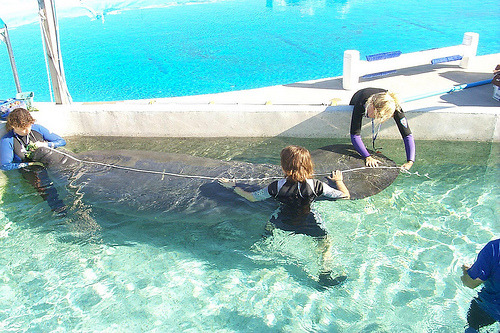
see, manatees don't actually live out in the open ocean. they live in rivers, estuaries, and shallow seagrass bays like this:

so the thing is, large macropredator sharks and superpredators like killer whales don't go here! they stay out in open deep water, so they never really cross paths with manatees in the first place.
there ARE sharks here, but they're small! adult manatees are completely out of their prey size range, and they're more interested in fish anyway.
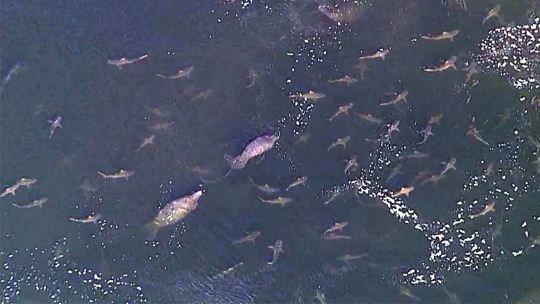
alligators do live here also, but even a very large alligator can't really dream of preying on an adult manatee! again, they're simply too big.
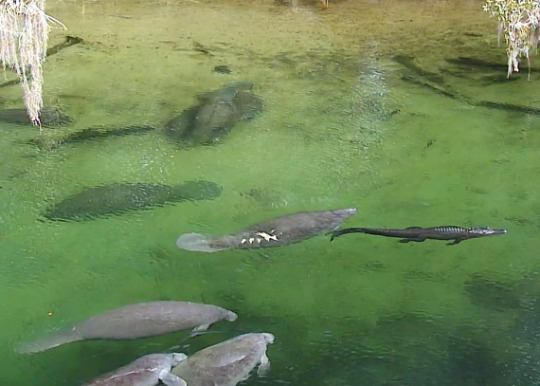
so, yeah. this is just another case of "this mammal is able to get away with being a gentle giant by simply growing too large for any predator in its area to touch" and I think that's beautiful.

15K notes
·
View notes
Text
GUYS. DID YOU KNOW YOU CAN WRITE CHOOSE YOUR OWN ADVENTURE FICS ON AO3
98K notes
·
View notes
Text
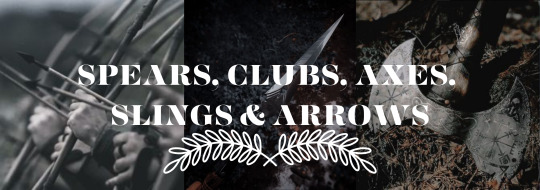
Writing Weapons (4): Clubs, Maces, Axes, Slings and Arrows
Clubs & Maces
Maces are refined versions of clubs, usually made from steel and flanged or spiked.
Perfect for smashing and plate armour and for crushing skulls.
When used on horseback, the rider uses continuous swining motion and leans to the side to hit.
Type of Fight Scene: gritty, historical fiction, smashing armour
Typical user: brawny male with broad shoulders nad bulging biceps
Mostly used in: historical fiction - Stone Age to Middle Ages
Main Action: smash, crush, bludgeon, batter
Main motion: downwards
Typical injury: crushed bones, crushed skull
Strategy for lethal fight: crush skull
Disadvantages: heavy, need to get closer to the opponent
Batle Axes
Used by a peasant or lumberjack
Special battle axes are bigger and heavier, with longer handles
A weapons for attack rather than defence, good at cleaving through armour
Can break through enemy shields and kill a charging horse.
They require intense training, so users are highly skilled elite soldiers, often aristocrats.
Types of Fight Scene: gritty, brutal, battles, attack, historical fiction, fantasy fiction, cutting through armour
Typical User: tall brawny male with broad shoulders and bulging biceps, courageous, elite soldier, Viking, Saxon
Mostly Used In: European Dark Ages to Middle Ages
Main Action: cleave, hack, chop, cut, split
Main Motion: downwards
Typical Injury: severed large limbs, split skulls, cleaved torsos
Strategy for Lethal Fight: severe the arm which holds the sword or the shield, or cleave torso from top to bottom, or cut off a lef then split the skull
Disadvantages: big and heavy
Bows and Arrows
They are weapons of mass use. Hundred of arrows are shot at the enemy to inflict as mcuh damagne as possible from a distance.
In the middle of the battle and for close combat, they're useless.
Castles were designed for the use of bows and arrows, with narrow windows called 'archer slits'. The top of the outer walls were desgined so archers could shoot while remaining under cover.
Arrows are relateively cheap and quickly to produce. Tips an be metal or sharpened stone, wood, bone, glass splinters, etc.
Pieces of feather at the end help the arrows fly better, but knowing which part of the feather to attach how and where is much -treasured knowledge.
Characters can learn the basics of archery can be done quickly at an emergency. However, to be really good it takes years of practice.
Most important skill is to be able to shoot many arrows in quick succession.
Stone Slings
Stone slings are cheap to make - it only takes a piece of leather, string and ammunition are simply pebbls lying around.
This makes it good for low-tech historical periods and for characters of all ages and physical capacities.
Doesn't require great physical strength, but a lot of practice is required to achieve accuracy.
Different cultures have different techniques for holding and releasing, none of which includes the continuous frantic whirling around beloved by moview makers. Rotatin is usually done once or twice, or not at all.
(1) the slinger hooks the end of the sling over her fingers (2) holds the hand above the shoulder so the sling's bag with the stone in it hangs down behind her shoulder. (3) flings it straight forward.
Blunders to Avoid
Depicting an axeman as an unkilled brute who chops blindly.
Battles where the archers shoot when sword fighters are already engaged in close fighting
881 notes
·
View notes
Text
Stuff about having monocular vision that people don’t know (in my experience)
1. You only ever sit on one side of a room. (Especially if you’re in class) If you’re blind in your left eye like me, you sit to the left of the room so your right eye has the greatest scope, and there’s not much to your left to look at.
2. Harder time seeing past obstacles. People with two eye vision have the perception of both their eyes blend together for one image. Without this, you only have one eye, so you’re don’t get to see past obstacles the same way. For example if something is blocked for your right eye and not for your left, you can still see it through your left. For people with monocular vision this isn’t possible.
3. People don’t walk on the side of your blind eye. It may just be me, but because I’m blind in my left eye I tend to accidentally bump into people if they’re on my left. So when people walk beside me I naturally go so they’re to my right, or they do, without it being discussed.
4. 3D movies are headaches. Even though we’ve progressed past the red-blue type glasses, 3D just doesn’t work well for monocular vision. (And you know those fun optical illusions? A lot of them don’t work at all- nothing happens!)
5. Things like grabbing a pencil without looking at it are extremely difficult. (Due to lack of depth perception, you have a hard time discerning where things are in 3D space). This also stretches to having bad posture and balance. Meanwhile, things that are flat are relatively easy.
6. You turn your head when you’re looking at something, so your good eye is focused on it. This includes tilting your head at worksheets, TVs, and computer screens- and also people.
7. Seeing in the dark is also much harder, because people rely on their depth perception for it, and without that stuff gets real hard
8. The headaches. Most people with blindness don’t experience total blindness, but instead low vision, where their vision is not able to be used in a way that’s helpful. Your brain tries to merge the images, or use your bad eye to see something in the peripheral. This just makes your head hurt. Much like people who need time to adjust to having glasses due to the headache, getting headaches is common because your vision is always at odds.
9. More susceptible to eye damage. Since you’re not overly aware of your bad eye, you may not notice if the sun is shining directly at it. I tend to squint with my bad eye whenever I’m outside, without thinking about it. Additionally, you’re more wary of anything that could damage your good eye. It’s the only one, so you gotta be careful with it.
10. Also, it makes things really, really weird if there’s a bright light from one side but not from another. There are often after images that float in my vision.
11. Looking at things that are moving can be hard. I can focus on an object, but if a camera is panning in some direction without being focused on one thing in particular, I just stop being able to make sense of what I’m seeing. It becomes very jarring.
12. Sometimes it’s not that your eye necessarily has anything wrong with it, but that your optic nerve isn’t fully connected. So the eye may be healthy, but your brain shut it off, and the connection between the light coming in your eye, and the way the brain interprets it, never fully formed. Funnily enough, I’ve heard that this can cause the connection between your good eye and your brain to be stronger, as it is with mine. For some people it’s the opposite, and it makes both of their eyes worse. Peoples experiences can really differ.
3K notes
·
View notes
Text
“cyberpunk future where you need to make payments on your cybernetics or they get repo’d” is good, but doesn’t go far enough. consider cyberpunk future where the terms of service restrict how you can use your augments and implants — your prosthetic hands physically quake and lock up if you try to use them for things your medical company deems “a risk factor” (which somehow includes protesting the very same biomedical conglomerate), and your eyes automatically blur information that tells you how to improve or update augments yourself. but even surrounded by this much greed, widespread underground communities exist of people helping one another jailbreak their titanium bodies, recapturing the autonomy corporations have methodically stripped away from them.
19K notes
·
View notes
Note
Hi, do you have any advice for indecisive writers? <3 Anything in general would help, I'd love something specifically for autistic people (whose brains shut down the "decising-making centre") too if possible <3
Tips for Indecisive Writers
My number one tip for indecisive writers is to not be afraid to go "old school" and literally pick something out of a hat or roll a dice. For example, if you're deciding between three different plot ideas, you can write each one on a few folded up pieces of paper, throw them all into a bowl, mix it up, and whatever you draw is the one you go with. Or, you could say 1 and 2 are idea #1, 3 and 4 are idea #2, and 5 and six are idea #3, then roll dice. And, actually, if you type "roll dice" into Google, you can roll digital dice and you can choose up to 20-sided dice or customize your own number of sides. This is particularly helpful if you have a list of items, such as several names you're trying to decide between.
If you Google "online decision maker" you come up with a bunch of different online tools. Easy Decision Maker lets you type in a question... for example, "What should I name my character?" Then you can enter up to 26 options. When you click the "answer" button, it chooses one for you. Picker Wheel lets you put in the various options, then spin a wheel to decide.
The trouble I tend to have is sticking with whatever "fate" decides at that point, but one thing I've learned is that sometimes when my brain plays that game... where I roll a 4 meaning I go with plot idea #2, and then I'm disappointed, I know that is because some part of me knows I want to do either idea #1 or idea #3. So, even though it isn't working exactly as planned, I've still accomplished something... I've eliminated a choice. Now I can roll again, with 1 -3 being idea #1 and 4 - 6 being idea #2, and I know if I'm disappointed again with whatever I get, then the remaining choice is the one I wanted all along. For whatever reason, though, my brain can't just make that decision. It needed to go through that process to get there, and that's okay!
Now, as helpful as decision making tools can be, they're not always helpful in the moment, when you're writing and you're not really stuck between particular choices, but rather you're facing an empty void and aren't sure where to take the story next. For me, this is where pre-writing comes in really handy. I always go into a story with a beginning to end summary at the very least so I know where things are going. There's still often some decision making to be done, but I find it easier to do before I write rather than during.
When it comes to finding things to even decide between... like when you're planning your story and you come up empty on something, I find inspiration sources to be extremely helpful. For example, let's say I want to write a romantasy, and I have no idea what I want the setting to be like. That's the worst kind of indecision, because it's not like I can just type four or five locations into a decision maker and let it pick for me. I don't have a list to even pick from. So, looking at inspiration sources helps. Maybe I saw a travel show about Bavaria which really intrigued me... that could be a great inspiration location for my setting. Or, let's say I'm not sure what I want my character to look like. I might scroll through a list of up and coming actors, through the cast of a random TV show or movie, or think about actors in TV shows or movies I've recently seen. As I scan past thumbnails of head shots, when I see someone who looks like my character, I can stop and note down the name or save the photo. And with any inspiration source, if I find myself unable to decide between multiple inspiration sources... it's back to the ol' decision maker!
I hope that helps!
•••••••••••••••••••••••••••••••••
I’ve been writing seriously for over 30 years and love to share what I’ve learned. Have a writing question? My inbox is always open!
♦ Questions that violate my ask policies will be deleted!
♦ Please see my master list of top posts before asking
♦ Learn more about WQA here
109 notes
·
View notes
Text
Make your OCs suffer
When have they been unable to save someone or something no matter how much they tried?
How much death and/or destruction have they wrought?
Do they try to prevent unnecessary suffering?
How do they feel about sparing women and children if given the choice? Do they value certain lives over others?
What's their moral compass like?
How far would they go to save someone they love? Would they sacrifice themselves? Others?
What's their pain tolerance?
Do they feel glee at the sight of blood?
What do they regret the most?
Do they have the ability to love?
Do they have empathy? For whom? For what?
How easy is it for them to get lost in despair?
What's their relationship to their body? Self esteem? Self image?
Do they have self worth?
How do they kill? Do they try to minimize suffering?
What haunts them?
What little regrets do they have?
If they could go back in time for 5/10/15 minutes and change something, what would it be?
How do they view the world? Are they an optimist? A pessimist? A realist?
Are they codependent? Do they have abandonment issues?
What's their relationship to sex? Modesty?
Do they enjoy the taste of blood?
Do they enjoy the feel of hot blood on their skin?
Do they like maiming?
Have they tore someone to shreds with their bare hands? With their teeth?
1K notes
·
View notes
Text
"With “green corridors” that mimic the natural forest, the Colombian city is driving down temperatures — and could become five degrees cooler over the next few decades.
In the face of a rapidly heating planet, the City of Eternal Spring — nicknamed so thanks to its year-round temperate climate — has found a way to keep its cool.
Previously, Medellín had undergone years of rapid urban expansion, which led to a severe urban heat island effect — raising temperatures in the city to significantly higher than in the surrounding suburban and rural areas. Roads and other concrete infrastructure absorb and maintain the sun’s heat for much longer than green infrastructure.
“Medellín grew at the expense of green spaces and vegetation,” says Pilar Vargas, a forest engineer working for City Hall. “We built and built and built. There wasn’t a lot of thought about the impact on the climate. It became obvious that had to change.”
Efforts began in 2016 under Medellín’s then mayor, Federico Gutiérrez (who, after completing one term in 2019, was re-elected at the end of 2023). The city launched a new approach to its urban development — one that focused on people and plants.
The $16.3 million initiative led to the creation of 30 Green Corridors along the city’s roads and waterways, improving or producing more than 70 hectares of green space, which includes 20 kilometers of shaded routes with cycle lanes and pedestrian paths.
These plant and tree-filled spaces — which connect all sorts of green areas such as the curb strips, squares, parks, vertical gardens, sidewalks, and even some of the seven hills that surround the city — produce fresh, cooling air in the face of urban heat. The corridors are also designed to mimic a natural forest with levels of low, medium and high plants, including native and tropical plants, bamboo grasses and palm trees.
Heat-trapping infrastructure like metro stations and bridges has also been greened as part of the project and government buildings have been adorned with green roofs and vertical gardens to beat the heat. The first of those was installed at Medellín’s City Hall, where nearly 100,000 plants and 12 species span the 1,810 square meter surface.
“It’s like urban acupuncture,” says Paula Zapata, advisor for Medellín at C40 Cities, a global network of about 100 of the world’s leading mayors. “The city is making these small interventions that together act to make a big impact.”
At the launch of the project, 120,000 individual plants and 12,500 trees were added to roads and parks across the city. By 2021, the figure had reached 2.5 million plants and 880,000 trees. Each has been carefully chosen to maximize their impact.
“The technical team thought a lot about the species used. They selected endemic ones that have a functional use,” explains Zapata.
The 72 species of plants and trees selected provide food for wildlife, help biodiversity to spread and fight air pollution. A study, for example, identified Mangifera indica as the best among six plant species found in Medellín at absorbing PM2.5 pollution — particulate matter that can cause asthma, bronchitis and heart disease — and surviving in polluted areas due to its “biochemical and biological mechanisms.”
And the urban planting continues to this day.
The groundwork is carried out by 150 citizen-gardeners like Pineda, who come from disadvantaged and minority backgrounds, with the support of 15 specialized forest engineers. Pineda is now the leader of a team of seven other gardeners who attend to corridors all across the city, shifting depending on the current priorities...
“I’m completely in favor of the corridors,” says [Victoria Perez, another citizen-gardener], who grew up in a poor suburb in the city of 2.5 million people. “It really improves the quality of life here.”
Wilmar Jesus, a 48-year-old Afro-Colombian farmer on his first day of the job, is pleased about the project’s possibilities for his own future. “I want to learn more and become better,” he says. “This gives me the opportunity to advance myself.”
The project’s wider impacts are like a breath of fresh air. Medellín’s temperatures fell by 2°C in the first three years of the program, and officials expect a further decrease of 4 to 5C over the next few decades, even taking into account climate change. In turn, City Hall says this will minimize the need for energy-intensive air conditioning...
In addition, the project has had a significant impact on air pollution. Between 2016 and 2019, the level of PM2.5 fell significantly, and in turn the city’s morbidity rate from acute respiratory infections decreased from 159.8 to 95.3 per 1,000 people [Note: That means the city's rate of people getting sick with lung/throat/respiratory infections.]
There’s also been a 34.6 percent rise in cycling in the city, likely due to the new bike paths built for the project, and biodiversity studies show that wildlife is coming back — one sample of five Green Corridors identified 30 different species of butterfly.
Other cities are already taking note. Bogotá and Barranquilla have adopted similar plans, among other Colombian cities, and last year São Paulo, Brazil, the largest city in South America, began expanding its corridors after launching them in 2022.
“For sure, Green Corridors could work in many other places,” says Zapata."
-via Reasons to Be Cheerful, March 4, 2024
15K notes
·
View notes
Text
I was getting pretty fed up with links and generators with very general and overused weapons and superpowers and what have you for characters so:
Here is a page for premodern weapons, broken down into a ton of subcategories, with the weapon’s region of origin.
Here is a page of medieval weapons.
Here is a page of just about every conceived superpower.
Here is a page for legendary creatures and their regions of origin.
Here are some gemstones.
Here is a bunch of Greek legends, including monsters, gods, nymphs, heroes, and so on.
Here is a website with a ton of (legally attained, don’t worry) information about the black market.
Here is a website with information about forensic science and cases of death. Discretion advised.
Here is every religion in the world.
Here is every language in the world.
Here are methods of torture. Discretion advised.
Here are descriptions of the various methods used for the death penalty. Discretion advised.
Here are poisonous plants.
Here are plants in general.
Feel free to add more to this!
192K notes
·
View notes
Note
I don't know if you've done this before but what are some good ways to describe speech?
Ways to Describe Speech
-> feel free to edit and adjust pronouns as you see fit.
His voice was deep like the rumbling of the earth.
She had the voice of a singer, smooth and rich like chocolate.
Their voice reminded him of spring rain.
He often paused in his speaking, like a car radio that had lost signal.
She had a lilt to her voice that made it seem like she was asking a question.
Their voice was monotonous, threatening to put her to sleep with every word.
He couldn't put her voice into words. It was... otherworldly.
Her voice was brittle, as if she were on the verge of tears.
Their voice was authoritative. Their words carried like a loud command.
His voice, unapologetic and unwavering, made her shrink back.
Her voice was barely above a whisper.
Their words were cold with anger.
Other Words to Use to Describe Voice:
Firm
Formal
Frank
Hesitant
Humorous
Passionate
Playful
Professional
Respectful
Serious
Sympathetic
Smug
Superior
Croaky
Dry
Forceful
Grating
Hateful
Insincere
Nasally
Snarky
Tuneless
Wavering
Breaking
Coarse
Flat
Hoarse
High Pitched
Husky
Mellow
Raspy
Rough
Scratchy
Strong
Trembling
Boisterous
Booming
Screeching
Faint
Feeble
Frail
Penetrating
Piercing
Quiet
Raised
Shrill
Soft
Weak
Whisper
Captivating
Deep
Feathery
Hypnotic
Lilting
Mesmerizing
Rich
Smoky
Soothing
Breathy
Delicate
Warbling
If you like what I do and want to support me, please consider donating! I also offer editing services and other writing advice on my Ko-fi!
6K notes
·
View notes
Text
Some of My Favorite Ways to Describe a Character Who’s Sick
pressing their forehead into something cool or comfortable (this could be an array of things. the table, the floor, someones leather jacket, their water bottle, the countertop)
warm to the touch, or heat radiating from them (could be noticed if someone’s gauging their temperature with their hands, hugging them, or just generally touching them)
leaning into people’s touch, or just spontaneously leaning on them (like pressing into their hand when someone’s checking their temp, or just, like, literally walking up and laying their head on them from fatigue. bonus points if the character is usually feral and the other is scared to engage™︎)
falling asleep all over the place (at the dinner table, on their homework, in the car, in the bathroom — just being so exhausted from doing literally nothing)
being overly emotional (crying over things that don’t usually bother them, like their siblings arguing, or their homework, or literally just nothing)
stumbling/careening/staggering into things (the wall, furniture, other people. there is no coordination in feverish brains. running into chairs, hitting the door, falling over the couch, anything and everything)
slurring their words (could be from fatigue or pain. connecting words that shouldn’t be connected, murdering all of their conversations with the excessive use of ‘mm’ and ‘nn’ in place of words) (this is my favorite thing ever)
being overly touchy (basically like a sick kid — just hold them, please. do that thing where you brush their hair back out of their face, or rub circles on their back, or snuggle them. they won’t care. bonus points if this is also the feral character and they refuse to believe it afterwards)
being extremely resistant to touch (flinching away when they usually don’t so someone can’t feel the fever, not letting themselves be touched because they’re so tired they just know they’ll be putty in their hands if they do)
growing aggressive or being extremely rude (it’s a defense mechanism — they feel vulnerable and are afraid of being manipulated or deceived while they’re ill)
whimpering/whining/groaning (this was in my “characters in pain” post but it’s so good that i’m putting it here too. this shite is gold, especially if it’s just an involuntary reaction to their symptoms)
having nightmares caused by a fever and/or delirium (crying and murmuring in their sleep, or being awake but completely out of it and convinced they’re somewhere else)
making themselves as small as possible (curling up into a ball everywhere they lay, hunching over slightly when standing, wrapping their arms around themselves)
TW for vomiting below cut !!
sleeping in the bathroom floor because they keep getting sick over and over (bonus if someone finds them all weak and pitiful. bonus bonus if they find them there in the morning only to learn they’ve been there all night)
using their hands/other body parts to clamp over their mouth so nothing can come out (like pulling their knees up to their chest and using that, or like, their arm, y’know) (~maccreadysbaby who has emetophobia suddenly gets very awkward about this post~) (~yes i have a phobia of puke and still write this happening to my characters, shut up~) (~it’s about the hurt/comfort okay~)
sympathy pukers (people who aren’t the sick ones but get nauseous/vomit when they see someone else throw up) (~aka me~) (~okay I’m done now~)
dry heaving (it’s gross, but good for making your characters absolutely freaking miserable)
rolling/churning/spinning/cramping/ lurching and all those awesome words that describe what stomachs do when sick (i hate these words with a deep, fiery passion. but they’re good for writing or whatever)
16K notes
·
View notes
